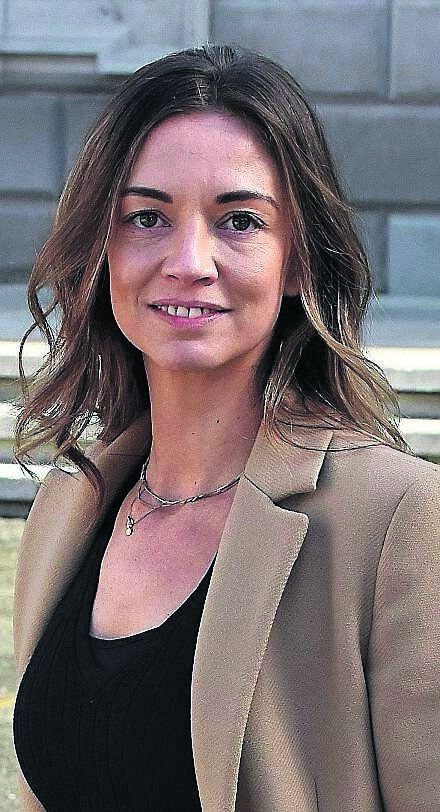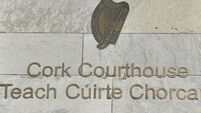Area in Cork short 80% of staff required to meet primary care psychology requirements for children and adolescents

The level of vacancy in Cork primary care psychology services for young people has been criticised amid soaring wait lists and referrals, with the HSE acknowledging significant challenges in hiring new staff.
An area in Cork is short over 80% of the staff needed for primary care psychology for children and adolescents, as referrals have skyrocketed and wait lists have increased dramatically — 28 fold in one region in the last three-and-a-half years.
The level of vacancy in Cork primary care psychology services for young people has been criticised amid soaring wait lists and referrals, with the HSE acknowledging significant challenges in hiring new staff.
Taoiseach Simon Harris confirmed that more than six in 10 positions in primary care psychology posts in Cork and Kerry are vacant, with the recruitment embargo meaning new staff cannot be hired.
This figure, provided to Cork South West TD Holly Cairns, come as the Social Democrats leader has highlighted huge waiting lists, with more than 100 people in Cork waiting four to five years for an appointment.
Ms Cairns told The Echo: “The increase in the number of children on these waiting lists is absolutely staggering, and is a catastrophic failure by this Government to provide basic and essential psychology services to children.”
Ms Cairns asked, via parliamentary question, for an exact breakdown of psychology posts, per grade, advertised for Cork in the last four years, when recruitment began for each vacancy, and if the posts were filled.
A spokesperson for the HSE said: “Staffing levels change regularly due to career progression, resignation, and/or statutory leave.
“Information relating to national recruitment drives is not held by the local department,” but they added that “all options available were explored to enhance staffing.”
They provided figures which show the current funded whole-time equivalents by grade in Cork primary care child/adolescent psychology services and the vacancies as of June 2024.
The figures show that North Cork is short one whole-time equivalent for a principal psychologist, and that North Lee is short six whole-time equivalents out of 9.6 funded posts across senior psychologist, psychologist staff grade, and psychology assistant roles.
South Lee is short 8.17 out of 10 funded roles, the greatest deficit in any area, with five of the vacancies being assistant and three being staff grade.
The deficits were smaller outside of the city, but still high, as the figures show North Cork is short just over 2.5 whole-time equivalents out of five across all areas and West Cork is short one of three.
RECRUITMENT
The HSE spokesperson told Ms Cairns: “In late 2023 and ongoing, as a result of the recruitment embargo, vacancies in new and development posts have not been filled nor has cover been achieved for statutory leave.
“We are awaiting derogation of posts in both core psychology services and the wait-list initiative.”
Taoiseach Simon Harris told Ms Cairns in the Dáil that the HSE has advised that data showed an increased referral rate across the region of 63%, specifically for primary care psychology waiting lists.
He said: “There seems to be a particular challenge in this region, which I do not believe is replicated nationally, based on this note.
“Psychology vacancies in the region equate to approximately 25 whole-time equivalents. It is 25.95, which is a 61% vacancy rate.
“I understand Cork and Kerry are at present working on a service improvement plan, and new and improved initiatives, but that is a high vacancy rate,” he said, adding that he will speak with the minister for health about the issue.
As staff levels decrease, referrals increase across Cork.

Some 787 children and adolescents were referred to primary care in Cork in 2020, 1,476 in 2021, 1,824 in 2022, and 1,849 in 2023.
South Lee saw referrals triple between 2020 and 2022, while referrals in West Cork, North Lee, and North Cork more than doubled.
The combination of increased referrals and decreased staffing has led to staggering waiting lists.
Historical figures released to Ms Cairns show that there were 814 people on waiting lists at the end of 2020, with the majority of these being in South Lee — where there were 523 young people on waiting lists.
There are 4,343 young people in Cork on the waiting lists according to the latest figures, six times more than three and a half years ago.
The most stark increase is in North Lee, where there were 53 people on the waiting list in December 2020 and 1,503 in mid-May 2024 — a 28-fold increase.
Some 26 people have been waiting four to five years, 111 are waiting three to four years, 327 are waiting two to three years, and 451 are waiting from one year to two years.
In South Lee, waiting lists more than tripled — going from 523 to 1743 — similar to West Cork, where figures went from 119 to 432.
North Cork, which also had 119 people on waiting lists at the end of 2020, now has almost six times as many with 665.
Ms Cairns told The Echo: “I hear over and over again from mental health advocacy groups that there is a complete absence of public support available for those who need intervention, but who are not at a stage where their life is at risk.
“This is an incredibly dangerous situation to be in as mental health difficulties, which could have been identified and addressed at an early stage, are left to worsen and become lifelong — or life- threatening — conditions.”
Ms Cairns said that the 6% staff vacancy rate in primary care psychology services in Cork and Kerry “is a very worrying development,” adding: “A 61% staff vacancy rate does not appear overnight.
“This Government has watched the waiting list and staff vacancy rate worsen for years now, and has not taken the action needed to fix the problem.
“Instead, they implemented a recruitment freeze in the HSE which has caused the issue to further spiral out of control.
“Instead of allocating more money to our health service, the Government decided to take an austerity approach — saving money by slashing recruitment for vital healthcare positions.”
She added: “There was an €8bn budget surplus last year. The money is there to provide high-quality child primary care psychology services in Cork. It is a choice by this Government to refuse to release the funding needed to provide it.”
'REGRET'
A HSE spokesperson told The Echo: “We sincerely regret the waiting times for primary care psychology. We accept the impact on children waiting for appointments, and we are very aware of the importance of timely access to services for young people and their families.
“Recruitment of psychologists is currently very difficult ... we are working hard to respond as the demand for the service continues to grow.
“Unfortunately, the waiting list continues to grow due to an increase in referrals and staffing challenges — given the recruitment challenges, all possible options continue to be explored in order to increase staff numbers,” they said.
They have asked psychology graduates if they are interested in taking up psychology assistant posts, and advertised posts through several channels.
An additional expression of interest process is open so that eligible staff can transfer to the service.
According to the spokesperson, other options include: Targeting students graduating from doctoral psychology programmes, reviewing CVs to see if applicants were eligible for posts in primary care psychology, and the use of overtime.
The spokesperson said: “Despite these varied efforts, there is still a significant shortfall in the staff available to the service.
“In relation to North Cork Psychology Service, we can confirm that interviews recently took place for the position of principal psychologist. Subject to the normal recruitment checks and process, we hope to have a candidate in place soon.
“We would like to reassure parents and families that referrals to Primary Care Psychology Service are triaged as they are received, so that children are directed to the most appropriate service.
“If a child’s needs increase while they are waiting for an appointment, then their family or caregiver should speak to their GP in case a referral to another service is needed.”










 App?
App?





